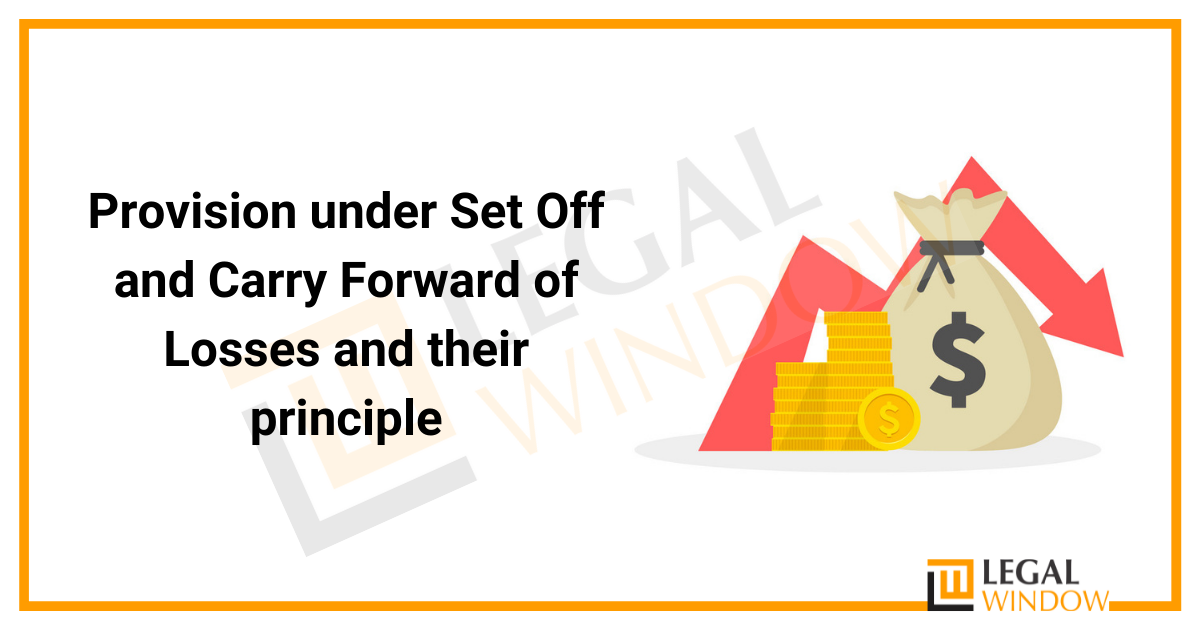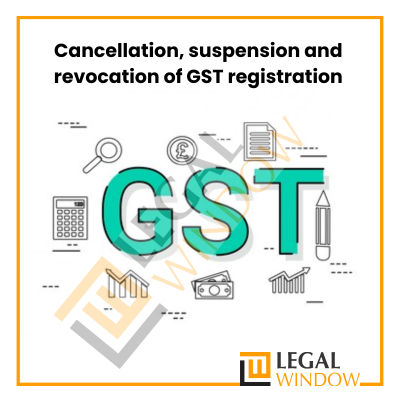Provision under Set Off and Carry Forward of Losses and their principle
- February 16, 2022
- Income Tax

The two sides of a coin are profit and loss. Losses, of course, are difficult to accept. However, the Income-tax law in India does afford some benefits to taxpayers who suffer losses. Let us understand the Provisions of set off and carry forward of losses and their principles. Set-off and carry-forward provisions are included in the law.
Before we move ahead let us discuss what exactly set off and Carry Forward means.
| Table of content |
Meaning of Set off of Losses – Provisions of set off and carry forward of losses
Set off refers to adjusting of losses against profits from the same source of income or from other sources during the year.
In other words, we can say that, the term “set off” refers to the process of balancing losses against the profit or income of a given year.
Losses that are not set off against income in the same year can be carry forward and set off against income in subsequent years. An intra-head set-off or an inter-head set-off are two types of set-offs.
The two types of Set off losses are:

Intra-head Set off:
Under the same heading of income, losses from one source of income can be set off by gains from another.
Exceptions
- A speculative business’s losses will be set off against the speculative business’s earnings. The profits from any other business or profession cannot compensate for the losses of speculative enterprise.
- Only the profit from owning and keeping racehorses will be deduce from the loss.
- Long-term capital losses will be adjusted exclusively in the direction of long-term capital gains.
- However, both long-term and short-term capital gains may be set off by a short-term capital loss.
- Losses from a certain firm will be set off only against profits from other businesses in the same category. Losses from other businesses or professions can be set off against profits from the selected firms.
Inter-head Set off
The taxpayers can offset any residual losses against income from other heads after the intra-head adjustments.
Examples:
- Loss from a house property can be deducted from Total Income under any heading except Salary.
- Deprivation from a business, other than speculative enterprise, can be deducted from income under any heading except salary.
Meaning of carry forward of losses- Provisions of set off and carry forward of losses
There may still be unadjusted losses after making the appropriate and acceptable intra-head and inter-head adjustments. These readjustments of losses can be carried forward to subsequent years to be set off against future revenue. The requirements for carrying forward vary slightly depending on the type of income.
Carry forward of loss refer to the number of loss that will set off profits from one or more heads.
Want to file your Income Tax Return through us? Call us
Some Examples of Carry forward of losses
- Household Property Losses
- Can be carrying forward for up to the next eight assessment years from the year in which the loss occur.
- We can deduct income only from a home property.
- Even if the income tax return for the last year is filed late, it might be carried forward.
- Losses from non-speculative business
- Losses can be carry forward for up to eight years from the year in which they occur.
- Can only be used to offset income from a business or profession.
- In future years, it is not necessary to continue the business at the time of departure.
- If the return is not filed by the original due date, it will not be carried forward.
- Loss of a Speculative Business
- Can be carrying forward for up to four assessment years from the year in which the loss occur.
- We can deduct income only from speculative enterprise
- Taxpayer cannot carry forward until he pays the return till due date.
- In future years, it is not necessary to continue the business at the time of departure.
- Under 35AD, Specified Business Loss
- Under 35AD, there is no time limit on carrying forward losses from a specific enterprise.
- In future years, it is not necessary to continue the business at the time of departure.
- If the taxpayer do not file return till original due date, then he cannot bring it afterwards.
- We can use to offset income from a specific firm under 35AD.
- Losses in capital
- Can be carrying forward for up to the next eight assessment years from the year in which the loss occur.
- Only long-term capital gains can be offset by long-term capital losses.
- Further, Short-term capital losses can be set off against both long-term and short-term capital profits.
- Moreover, If the taxpayer do not file return till original due date, then he cannot bring it afterwards.
- Losses incurred as a result of owning and maintaining racehorses
- It can be carry forward for up to four assessment years after the year in which the loss occur.
- Further, If the taxpayer do not file return till original due date, then he cannot bring it afterwards.
- Moreover, it can only be deduce from earnings from owning and maintaining racehorses.
Essentials for Provisions of set off and carry forward of losses
- A taxpayer who incurs a loss from a source whose income is otherwise tax-free cannot offset those losses against profits from any taxable source of income.
- Further, Losses cannot be set off against casual income, such as crossword puzzles, winnings from lotteries, races, card games, betting, and so on.
Takeaway
If the taxpayer cannot properly adjust the loss under “Income from residential property” in the year in which it occurs, then the loss will be forward to the following year. We can only remove this loss under “Income from house property.” Hence, we can say that it is the great initiative by Income Tax Department which protects and promote the interest of the taxpayer’s in loss.
To know more about these kindly contact our experts.
CA Pulkit Goyal, is a fellow member of the Institute of Chartered Accountants of India (ICAI) having 10 years of experience in the profession of Chartered Accountancy and thorough understanding of the corporate as well as non-corporate entities taxation system. His core area of practice is foreign company taxation which has given him an edge in analytical thinking & executing assignments with a unique perspective. He has worked as a consultant with professionally managed corporates. He has experience of writing in different areas and keep at pace with the latest changes and analyze the different implications of various provisions of the act.
Categories
- Agreement Drafting (23)
- Annual Compliance (11)
- Change in Business (36)
- Company Law (147)
- Compliance (88)
- Digital Banking (3)
- Drug License (3)
- FEMA (17)
- Finance Company (42)
- Foreign Taxation (6)
- FSSAI License/Registration (14)
- GST (117)
- Hallmark Registration (1)
- Income Tax (199)
- Latest News (34)
- Miscellaneous (164)
- NBFC Registration (8)
- NGO (14)
- SEBI Registration (6)
- Section 8 Company (7)
- Start and manage a business (20)
- Startup/ Registration (126)
- Trademark Registration/IPR (40)
Recent Posts
- Understanding the provisions of GST Audit and Adjudication April 20, 2024
- April, 2024 Tax Compliance Tracker: Income Tax & GST Deadlines April 18, 2024
- Managing Director & Whole Time Director in a Private Limited Company April 17, 2024
About us
LegalWindow.in is a professional technology driven platform of multidisciplined experts like CA/CS/Lawyers spanning with an aim to provide concrete solution to individuals, start-ups and other business organisation by maximising their growth at an affordable cost.








